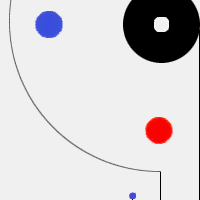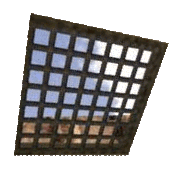Patents and the laws establishing patents and their use and scope are only one area of statutory law and common law that governs the conduct and practices of businesses.
There are many other laws (both common and Statutory) which address other important business issues and governs the conduct of businesses.
Things like unfair competition, deceptive business practices, false advertising, trademark law, trade secrets, proprietary know-how, and many other issues...
but, contrary to Dougs apparent misunderstanding... he seems to think that if a product is not patented than anything and any practice is fair game. Such could not be further from the truth.
other issues that a business lawyer will look at and examine include;
*********************************************************************
The FTC Act
The FTC Act, among other things, created the Federal Trade Commission which is responsible (along with the Justice Department in the case of Sherman Act violations) for the enforcement of antitrade laws. The FTC Act also included language which makes activities that constitute unfair competition by individuals illegal (remember that the Sherman Act only addressed such activities by groups). The FTC Act has additional provisions that relate to consumer protection.
Factors to be considered in determining “obviously unfair”
“Obviously unfair” as used in Article 24 refers to engaging in competition or commercial transactions by obviously unfair means. Its most common and concrete types fall into three general categories:
(i) Unfair competitive conduct contrary to business competition ethics
(a) Exploiting the fruits of others' work
Common types of such conduct are: free riding on the business reputation of another; imitation to a substantial degree; taking advantage of the work of another person to promote one's own goods or services.
(b) Impeding fair competition with the purpose of harming competitors
Common types of such conduct are improper comparative advertising and making representations to trading counterparts of a competitor alleging that the competitor's infringement of intellectual property rights.
(ii) Engaging in trade by means contrary to social ethics
Common types of such conduct include carrying out trading by means of coercing or harassing a trading counterpart to suppress the trading counterpart's free will regarding whether to trade.
(iii) Abusing an advantageous market position to engage in unfair trade
********************************************************************
common law and statutory law also provides remedies for an illicit business practice which is known as "passing off".
:::Passing Off occurs when a trade or service mark is not registrable it may still be entitled to certain protection, i.e. a passing-off action. Passing off is available where there is a prospect of confusion of identity through the unauthorised use of similar marks or get up, and such use damages, or is likely to damage the goodwill and reputation of a business. Unregistered marks and passing off can apply to virtually any name, mark, logo or get-up which distinguishes a company, business, product or service. ::::
::::Passing off occurs when a producer misrepresents his own goods or services as someone else's. Reverse passing off occurs when a producer misrepresents someone else's goods or services as his own. Both can be actionable under the Lanham Act, which makes actionable not only the misleading use of marks, but also the false designation of origin of goods.::::
the lanham act is a federal statue. Business practices are also governed by the Fair Trade Practices Act which covers rights of publicity, misappropiation of trade values and trade secrets, false and deceptive advertising, interference with trade relations. It short it addresses many issues relating to unfair and deceptive competition practices.... or what is also called predatory business practices.
so that, far in addition to the protection of property rights and designs captured through the provisions of the applicable patent laws. There exists, also, state and federal laws governing predatory business practices. Doug is just plain wrong if he believes that patent law is the only protections for a business against unfair business practices.
for example,:::If designs are commercially important to your business, the downside of only owning unregistered design rights is that you can only stop third parties from copying your designs.:::
notice that this states remedies may be available against third party piracy of proprietary designs.
and the above is further amplified in both common law and statutory law when consideration further includes;
::::MISAPPROPRIATION [unfair competition]. A common law form of unfair competition in which an individual or firm copies or appropriates some creation of another that is not protected by patent, copyright, or trademark law.::::
GOODWILL [trademark]. The value of a business or of a line of goods or services, beyond its tangible assets, that reflects its commercial reputation. A business with a well-established goodwill could have all its tangible assets destroyed yet still own its reputation — its goodwill. Since a trademark or service mark is a symbol of a business's goodwill, trademark infringement is a form of theft of goodwill.
UNFAIR COMPETITION [general intellectual property]. Commercial conduct that the law views as unjust, giving a civil claim against a person who has been injured by the conduct. Trademark infringement has long been considered to be unfair competition. Other recognized legal categories of unfair competition are false advertising, trade libel, infringement of a trade secret, infringement of the right of publicity, and misappropriation.
Unfair Competition: The imitation, by design, of the goods of another, for the purpose of palming them off on the public, misleading it, and inducing it to buy goods made by the imitator.
Unfair Competition
It means any acts designed to mislead and confuse the public and to incur deceptive substitution of one product for another, in the interests of obtaining an unfair advantage over one’s competitors. Practically all such activities are illegal.











